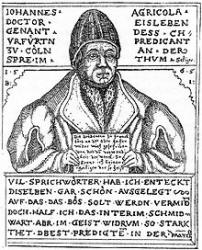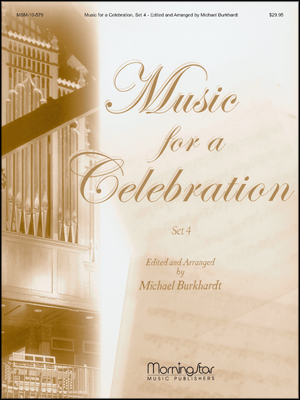- |
User Links
Lord, Hear the Voice of My Complaint
Lord, hear the voice of my complaint, To Thee I now commend me
Author: Johann Agricola ; Translator: Catherine WinkworthTune: ICH RUF ZU DIR
Published in 7 hymnals
Representative Text
1 Lord, hear the voice of my complaint,
To Thee I now commend me,
Let not my heart and hope grow faint,
But deign Thy grace to send me.
True faith from Thee, my God, I seek,
The faith that loves Thee solely,
Keeps me lowly,
And prompt to aid the weak,
And mark each word that Thou dost speak.
2 Yet more from Thee I dare to claim,
Whose goodness is unbounded;
Oh let me ne'er be put to shame,
My hope be ne'er confounded;
But e'en in death still find Thee true,
And in that hour, else lonely,
Trust Thee only,
Not aught that I can do,
For such false trust I sore should rue.
3 Oh grant that from my very heart
My foes be all forgiven,
Forgive my sins and heal their smart,
And grant new life from heaven.
Thy Word, that blessed food, bestow,
Which best the soul canst nourish;
Make it flourish
Through all the storms of woe
That else my faith might overthrow.
4 Then be the world my foe or friend,
Keep me to her a stranger,
Thy steadfast soldier to the end,
Through pleasure and through danger.
From Thee alone comes such high grace,
No works of ours obtain it,
Or can gain it;
Our pride hath here no place,
'Tis Thy free promise we embrace.
5 Help me, for I am weak; I fight,
Yet scarce can battle longer.
I cling but to Thy grace and might,
'Tis Thou must make me stronger.
When sore temptations are my lot,
And tempests round me lower,
Break their power;
So, through deliv'rance wrought,
I know that Thou forsak'st me not!
Author: Johann Agricola
 Agricola, Johann or Johannes (latinized from Schneider, (Schnitter) or Sartor, also called Magister Islebius), born April 20, 1492, at Eisleben, where his father was a tailor. During his University course at Wittenberg, Luther took a great interest in him, entertained him at his own table, took him with him to Leipzig for the disputation, in 1519, with Dr. Eck, and in 1525 procured for him the position of Rector of St. Andrew's School at Eisleben, and preacher at St. Nicholas's Church there. He remained in Eisleben till 1536, working hand in hand with Luther; but after his removal to Wittenberg, in 1536, as one of the lecturers in the University, he developed Antinomian views, and, in 1537, published a series of theses which Luther answered… Go to person page >
Agricola, Johann or Johannes (latinized from Schneider, (Schnitter) or Sartor, also called Magister Islebius), born April 20, 1492, at Eisleben, where his father was a tailor. During his University course at Wittenberg, Luther took a great interest in him, entertained him at his own table, took him with him to Leipzig for the disputation, in 1519, with Dr. Eck, and in 1525 procured for him the position of Rector of St. Andrew's School at Eisleben, and preacher at St. Nicholas's Church there. He remained in Eisleben till 1536, working hand in hand with Luther; but after his removal to Wittenberg, in 1536, as one of the lecturers in the University, he developed Antinomian views, and, in 1537, published a series of theses which Luther answered… Go to person page >Translator: Catherine Winkworth
 Catherine Winkworth (b. Holborn, London, England, 1827; d. Monnetier, Savoy, France, 1878) is well known for her English translations of German hymns; her translations were polished and yet remained close to the original. Educated initially by her mother, she lived with relatives in Dresden, Germany, in 1845, where she acquired her knowledge of German and interest in German hymnody. After residing near Manchester until 1862, she moved to Clifton, near Bristol. A pioneer in promoting women's rights, Winkworth put much of her energy into the encouragement of higher education for women. She translated a large number of German hymn texts from hymnals owned by a friend, Baron Bunsen. Though often altered, these translations continue to be used i… Go to person page >
Catherine Winkworth (b. Holborn, London, England, 1827; d. Monnetier, Savoy, France, 1878) is well known for her English translations of German hymns; her translations were polished and yet remained close to the original. Educated initially by her mother, she lived with relatives in Dresden, Germany, in 1845, where she acquired her knowledge of German and interest in German hymnody. After residing near Manchester until 1862, she moved to Clifton, near Bristol. A pioneer in promoting women's rights, Winkworth put much of her energy into the encouragement of higher education for women. She translated a large number of German hymn texts from hymnals owned by a friend, Baron Bunsen. Though often altered, these translations continue to be used i… Go to person page >Text Information
| First Line: | Lord, hear the voice of my complaint, To Thee I now commend me |
| Title: | Lord, Hear the Voice of My Complaint |
| German Title: | Ich ruf' zu dir, Herr Jesu Christ |
| Author: | Johann Agricola |
| Translator: | Catherine Winkworth |
| Meter: | 8.7.8.7.8.7.4.6.8 |
| Language: | English |
| Copyright: | Public Domain |
Notes
Four hymns by [Johannes Agricola] appeared in the early Lutheran hymnbooks, two of which were retained by Luther in Babst's Gesangbuch, Leipzig, 1545.
1. Ich ruf zu dir, Herr Jesu Christ. [Supplication.] Wackernagel, iii. pp. 54-55, gives two forms of this, in 5 stanzas of 9 lines, the first from Geistliche Lieder, Erfurt, 1531, the second from an undated broadsheet before 1530, entitled, "A new hymn of supplication for Faith, Love, and Hope, and for a Holy Life; composed by John of Eisleben, preacher to John Duke of Saxony." Fischer, i. 345, refers to the Nürnberg broadsheet, c. 1526, quoted in Wackernagel's Bibliographie, 1855, p. 89, and adds that in his opinion the disfavour into which Agricola fell after the outbreak of the Antinomian controversy caused the suppression of his name in the hymn-books. After appearing in Klug's Geistliche Lieder, 1529, the hymn was included in almost all subsequent hymn-books, and so recently as No. 379 in the Unverfälschter Liedersegen, 1851.
It is sometimes erroneously ascribed to Paulus Speratus, an assumption originating with the Riga Gesang-buch of 1664. It was a favourite hymn of Valerius Herberger, of P. J. Spener (who requested it to be sung at his deathbed), and of many others.
Translations in common use:—
1. Lord Jesu Christ, I cry to Thee. A good translation, omitting stanza iv., by A. T. Russell, as No. 200 in his Psalms & Hymns, 1851.
2. Lord, hear the voice of my complaint. A full and very good translation as No. 116 by Miss Winkworth in her Chorale Book for England, 1863.
Other translations are:—
(1) “I call on the, Lorde Jesu Christ," by Bp. Coverdale, 1539 ( Remains, 1846, p. 560), repeated, slightly altered, in the Gude and Godly Ballates (ed. 1568, folio 34), ed. 1868, p. 57. (2) " I cry to Thee, my dearest Lord," by J. C. Jacobi, 1122, p. 68; in his edition1732, p. 114, altered to "To Thee, 0 Lord, I send my cries," and thence as No. 310 in pt. i. of the Moravian Hymn Book 1754; omitted in 1789 and 1801; in the Supplement of 1808, stanzas i., iv. were included as No. 1082, and repeated in later editions altered to "To Thee I send my fervent cries." (3) "I cry to Thee, 0 Christ our Lord! " by N. L. Frothingham, 1870, p. 205. [Rev. James Mearns, M.A.]
--John Julian, Dictionary of Hymnology (1907)


 My Starred Hymns
My Starred Hymns



